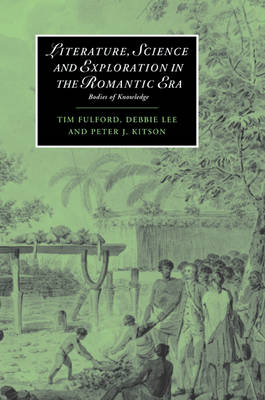In 1768, Captain James Cook made the most important scientific voyage of the eighteenth century. He was not alone: scores of explorers like Cook, travelling in the name of science, brought new worlds and new peoples within the horizon of European knowledge for the first time. Their discoveries changed the course of science. Old scientific disciplines, such as astronomy and botany, were transformed; new ones, like craniology and comparative anatomy, were brought into being. Scientific disciplines, in turn, pushed literature of the period towards new subjects, forms and styles. Works as diverse as Mary Shelley's Frankenstein and Wordsworth's Excursion responded to the explorers' and scientists' latest discoveries. This wide-ranging and well-illustrated study shows how literary Romanticism arose partly in response to science's appropriation of explorers' encounters with foreign people and places and how it, in turn, changed the profile of science and exploration.
- ISBN13 9780521039956
- Publish Date 23 July 2007 (first published 2 September 2004)
- Publish Status Active
- Out of Print 6 June 2022
- Publish Country GB
- Imprint Cambridge University Press
- Format Paperback (US Trade)
- Pages 348
- Language English
